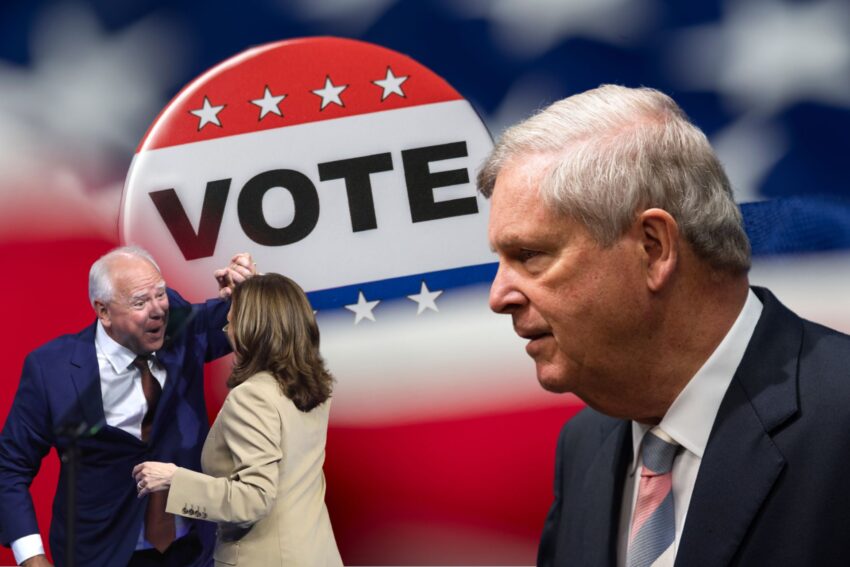At the Farm Progress Show in Iowa, Tom Vilsack, the current U.S. Secretary of Agriculture, hinted at his potential reappointment should Harris and Walz prevail in the upcoming election. This statement comes with a backdrop of both praise and criticism from his previous tenure under Obama, where he was known for his focus on climate change, rural development, and food security.
Vilsack’s speech highlighted the USDA’s push for ‘sustainable’ farming practices and food system enhancements, suggesting a continuation of these initiatives if reappointed. However, his tenure has not been without controversy. Critics argue that his policies might lean towards favoring large agricultural corporations, potentially sidelining smaller, independent farmers. This perspective has fueled debate over whether his policies truly serve the needs of American agriculture or if they cater more to corporate interests.
The mention of another term also brings to light his stance on diversity, equity, and inclusion (DEI) in agriculture. The Des Moines Register says that Vilsack is “all in” on DEI while companies like Deere are walking away from it. Vilsack has emphasized the importance of DEI, promising to address systemic inequities through new positions like the Senior Advisor for Racial Justice and Equity, his past actions have drawn criticism. While some Black farmers and civil rights advocates feel that his previous term did not adequately address or rectify historical injustices, many White farmers (who make up the vast majority of American farmers) did not like being discriminated against when the USDA handed out $2.2 billion in “reparations” to non-White farmers and would-be farmers who claimed they were discriminated against because they did not get loans.
Both Vilsack and House Agriculture Committee Chairman Glenn “GT” Thompson emphasized the urgency of passing a new Farm Bill, highlighting its significance for agricultural policy and rural development. Vilsack expressed concerns over the House GOP’s draft, which he believes could jeopardize the traditional coalition necessary for Farm Bill passage by proposing cuts to nutrition programs like SNAP, potentially amounting to $30 billion over a decade. This proposal, he argued, not only threatens food security but also restricts USDA’s flexibility in disaster response, which could delay aid to farmers. Thompson, however, defended the bill, suggesting it’s a strategic approach to manage spending and maintain support for agricultural communities, though he acknowledged the challenges in aligning all stakeholders. The discussion underscores the ongoing debate over funding, policy direction, and the balance between supporting farmers and addressing broader societal needs through agricultural legislation.
Vilsack’s potential for another term places him in a unique historical context, possibly aligning him with figures like “Tama Jim” Wilson, but also raises questions about continuity versus change in agricultural policy. His reappointment could mean a continued emphasis on ‘green’ policies, but it also stirs debate on whether these policies genuinely benefit all farmers or primarily those with significant resources.
As the election approaches, Vilsack’s potential reappointment signals a continuation of policies that intertwine environmental ‘sustainability’ with agricultural practices, and it also opens a discussion on ‘equity,’ corporate influence, and the true beneficiaries of USDA’s direction under his leadership. This scenario underscores the intersection of agriculture with broader political and environmental issues, highlighting Vilsack’s role not just as a policy maker but as a figure at the crossroads of rural America’s future and national policy-making.


